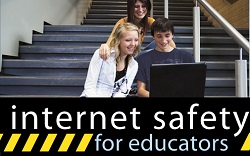Given Charles Sweeney’s excellent piece about anonymous proxies in schools last week, we decided to revisit a pertinent article written by Alan Mackenzie, Managing Director at SafeICT Consultancy Ltd, from last year.
As published in the March 2013 edition of our magazine.

Debates about internet filtering in schools may never go away - at least not so long as pupils and teachers are prevented from accessing online curriculum resources, and draconian policies are pursued by local authorities or other education bodies. I have visited schools that block as many websites as they realistically can, so afraid are they of the risks to pupils. Ofsted itself frowns on this practice (although I have yet to visit a school that has been asked a question about how they manage internet filtering).
There are three very good reasons why we limit internet access in schools: to safeguard children, to protect the school against liability, and to ensure that pupils use the internet for the right purposes. For the first two of these, a filter - a piece of software that blocks pupils’ access to certain internet content - works reasonably well. Modern filters are relatively good at reducing access to illegal and inappropriate material, and are becoming more difficult to bypass.

A community-driven platform for showcasing the latest innovations and voices in schools
Pioneer House
North Road
Ellesmere Port
CH65 1AD
United Kingdom